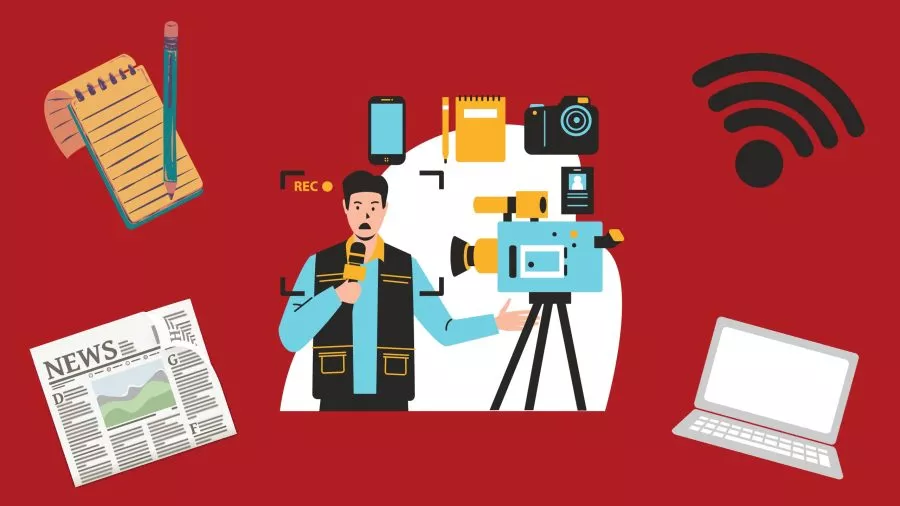By Tom Hill, Founder of Up To Speed Journalism Training.
In this series of blog posts on journalism careers, I am currently looking at some of the ’soft’ people skills journalists need to develop in order to become successful reporters. Today we’re looking at one of the most important traits of a good reporter – charm.
Tip #6 Turn On The Charm
When you first tell people you are a journalist you are likely to get one of two reactions – sudden interest in your exciting job, or, more often, a guarded suspicion that you are someone who is not to be trusted.
So, when you set about digging up a story, it is not always going to be easy. People will not always want to co-operate. They may be too busy, they may be distrustful and they may be genuinely worried that talking to you could cost them their jobs or their reputations.
Reporters have strategies for dealing with this. They quickly develop a thick skin and realise that there is no point in taking rebuffs personally. If the interview is important they also have to find ways to persuade people to talk to them.
Journalists are sometimes referred to as “hard-nosed hacks”. This gives the impression that they regularly bully or cajole reluctant interviewees into speaking to them. However, good reporters tend to find that charm and persistence produce much better results than menace and bluster.
Good reporters have an ability to put people at their ease, to soften them up, and to explain how publication of a story can benefit an interviewee and other people with similar experiences to that interviewee.
This may sound easy in theory, but difficult, or impossible, in practice. However, there are some simple rules of thumb, which can help to secure interviews.
• Find out the person’s name, use it repeatedly in conversation and ensure you spell it correctly. We all love the sound of our own name.
• Treat interviewees with deference and respect. You may not personally have a huge amount of respect for district councillor Joan Smith, but in your professional dealings with her, always remember to call her, “Councillor Smith”. However much she hides behind a veil of false modesty, the chances are Mrs Smith feels immensely proud of being a councillor. We all like to feel important.
• Treat every one you meet professionally in the same way. If you arrive at a company headquarters prepared to charm the boss, but treat the receptionist like dirt, you won’t get very far. Very often the receptionist can be the toughest obstacle you have to overcome in reaching that important person. Important people talk to their staff and may well hear how you behave when you are dealing with people who work for them. We all deserve respect.
• When you make an appointment to meet someone, make sure you are on time. You are in the business of persuading people to lend you some of their valuable time and so don’t waste their time. We all value our time.
• It may sound like a piece of advice your Mother would give you in primary school, but look smart and professional. First impressions really are important. You have to win the trust and confidence of your interviewees if you want them to share information or opinions with you. We all make snap judgements about people based on their appearance.
• And finally, remember that all of the above can be achieved if you meet someone in person, some of the above will work if you are good on the phone and none of the above can be achieved by email.
So, if you are chasing interviews, hit the road or pick up the phone, but only send an email when you are asked to and only then after you have asked for a phone or face-to-face interview first.
